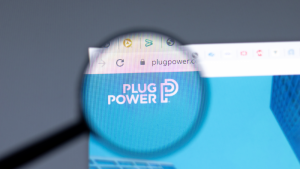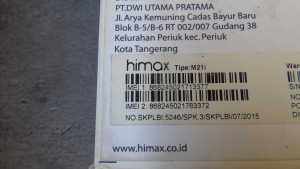Table of Contents Show
This time of year brings many tasks, holiday shopping and making Easter eggs, mowing the grass for perhaps the first time all year, and giving the house a deep spring cleaning. So why not do the same with your portfolio and rid it of stocks to sell?
There’s no time like the present when ridding your investment portfolio of underperforming stocks. And there are plenty of bad performers that you need to avoid if you’re going to have a successful 2024.
While the market is bullish, stubbornly holding stocks to sell is the surest way to miss out on the riches you should be accumulating now. Weak-performing stocks can drag your holdings into the red before you know it.
We’re using the Portfolio Grader to identify stocks to sell in your financial spring cleaning.
As you know, the Portfolio Grader evaluates stocks based on growth, earnings performance, analyst sentiment, momentum and other factors. If you have a stock with an “F” grade, you know it’s past time to kick it to the curb.
Lucid Group (LCID)
Source: Around the World Photos / Shutterstock.com
Don’t let recent events fool you. Lucid Group (NASDAQ:LCID) may have been up 6% in the last two weeks on the power of an interesting infusion of Saudi cash, but this electric vehicle company still has massive issues.
To recap, Lucid entered into a subscription agreement with the Public Investment Fund’s Ayar Third Investment Company.
In a private placement, Ayar will give Lucid $1 billion in exchange for 10,000 Series A convertible preferred shares.
The deal should help Lucid scale and grow. However, it also seriously dilutes LCID stock, as the preferred shares will represent 278.15 million shares of Lucid, roughly 12% of the company’s issued and outstanding shares.
Lucid needs to scale because it delivered only 6,000 vehicles in 2023. But as an investor, I’m not on board and adding it to my list of stocks to sell. Even with this month’s turnaround, LCID stock is down nearly 30% in 2024 and it still warrants an “F” rating in the Portfolio Grader.
Plug Power (PLUG)

Source: Postmodern Studio / Shutterstock
Plug Power (NASDAQ:PLUG) makes a batter that uses hydrogen and oxygen to produce electricity and only leaves water vapor as a byproduct.
But the process isn’t cost-effective and Plug still hasn’t figured out how to make money, which is why it’s among the stocks to sell while you can. Third-quarter earnings of $198.7 million, but the company lost $283.4 million and 47 cents per share, which was worse than a year ago when it lost $170.7 million and 30 cents per share.
Plug is getting a boost from the U.S. Department of Energy, which is spending $75.7 million to help Plug develop its facilities. Plug is also reportedly working on to secure a $1.6 billion loan facility with the U.S. government to help it with its liquidity issues. But I don’t think it’s enough for the long term.
PLUG stock is down 23% in 2024 and gets an “F” rating in the Portfolio Grader.
Himax Technologies (HIMX)

Source: Mamat Suryadi / Shutterstock
Fabless semiconductor manufacturer Himax Technologies (NASDAQ:HIMX) proves that not every semiconductor stock is a winner in today’s market. Generative artificial intelligence is boosting many semiconductor companies, but Himax is being left in the dust.
Himax designs and makes display driver integrated circuits responsible for image quality and functionality. Himax products are used in TVs, tablets and automotive displays, items that are not seeing the same demand as those that drive AI applications.
Revenue in the fourth quarter was $227.6 million, down from $262.2 million a year ago. Profits of $23.5 million and 13 cents per share was a steep drop from the same quarter a year ago, when Himax brought in $42.1 million and 24 cents per share.
HIMX stock is down 11% in 2024 and gets an “F” rating in the Portfolio Grader.
AMC Entertainment Holdings (AMC)

Source: rblfmr / Shutterstock.com
AMC Entertainment Holdings (NYSE:AMC) has been among the most popular meme stocks over the last few years. But being a meme stock doesn’t help when a company has some basic problems that will keep the stock weak for the foreseeable future.
A weakened movie market has battered AMC. First, there’s the rise of streaming services, which means people are much more willing to wait a couple of months to watch it in the comfort of their homes.
Then there are the aftereffects of last year’s Writers Guild of America strike, which shut down production for months. Only two films – Dune: Part Two and Kung Fu Panda 4 – have generated more than $100 million in domestic box office sales so far this year.
AMC’s long-term debt load of $4.6 billion is making lenders nervous enough to meet to consider ways to prop up the balance sheet.
AMC stock is down 29% this year and gets an “F” rating in the Portfolio Grader.
Mullen Automotive (MULN)

Source: rafapress / Shutterstock.com
As bad as meme stocks can be, they look good compared to the wretchedness of Mullen Automotive (NASDAQ:MULN) stock.
Mullen still manages to be a penny stock, trading at less than $5 per share, despite three reverse stock splits in 2023, capped by a 1-for-100 split in December.
Mullen stock is down more than 99% in the last 12 months and has lost more than 60% so far in 2024. It delivered only 396 vehicles in the fourth quarter of 2023, and that was the best quarter in the company’s history. The company reported a net loss of $61.4 million, or $15.32 per share.
The EV company hopes a pivot to commercial EVs will be its ticket to profitability. But if it doesn’t work out, there’s always the possibility of a few more stock splits to further reduce share value and artificially prop up the price, right?
MULN stock gets an “F’ rating in the Portfolio Grader.
Solid Power (SLDP)

Source: T. Schneider / Shutterstock.com
Solid Power (NASDAQ:SLDP) develops all-solid-state battery cells, which use solid electrolytes as opposed to lithium-ion batteries that use a liquid electrolyte solution.
The batteries are seen as a viable alternative to lithium-ion batteries and could be used in everything from EVs to renewable energy.
Solid Power says its products will be safer, will provide more energy and will cost less than lithium-ion batteries. And that may be true. But the company is a growing business and is taking steep losses that aren’t yet being realized by revenue.
Revenue in 2023 was $17.4 million, up from $11.7 million in 2022. But the company took losses of $65.5 million and 37 cents per share for the year, much higher than 2022 losses of $9.5 million and 5 cents per share.
Its 2024 outlook calls for revenue between $20 million and $25 million, while it expects to spend $100 million to $120 million on operations and capital expenditures.
I’m not ready to write SLDP off. It may be a good company one day. But as an investment this spring, it’s best to toss it to the curb and invest in a company that’s making a profit for its shareholders.
SLDP stock gets an “F” rating in the Portfolio Grader.
Pfizer (PFE)

Source: Manuel Esteban / Shutterstock.com
I also can’t recommend a position in Pfizer (NYSE:PFE) stock today.
The company made a huge contribution to the planet by being one of the first companies to create an approved Covid-19 vaccination. And it was well-paid for its efforts, bringing in billions of dollars in revenue.
The problem with Pfizer stock today is that people aren’t getting Covid-19 vaccinations as they were a year or two ago, so the company’s revenues are way down.
Fourth-quarter revenue was $14.2 billion, but that’s down 41% from a year ago. Income was $593 million. But that’s down from $1.14 billion in the fourth quarter of 2022.
Even though it’s one of the stocks to sell now, I think Pfizer has a good road ahead of it. The company is planning more than a dozen product launches in the next 18 months.
It also recently purchased Seagen, an oncology specialist, which will add four commercialized oncology products to its revenue stream.
But looking at PFE today, it’s still too early to buy. PFE stock is down 3% in 2024 and gets an “F” rating in the Portfolio Grader.
On the date of publication, neither Louis Navellier nor the InvestorPlace Research Staff member primarily responsible for this article held (either directly or indirectly) any positions in the securities mentioned in this article.
Energy, Renewable Energy, Battery, Healthcare, Biotech, Consumer Discretionary, Automotive, Electric Vehicles, Hydrogen, Technology, Semiconductor, Communications, Media, Streaming










